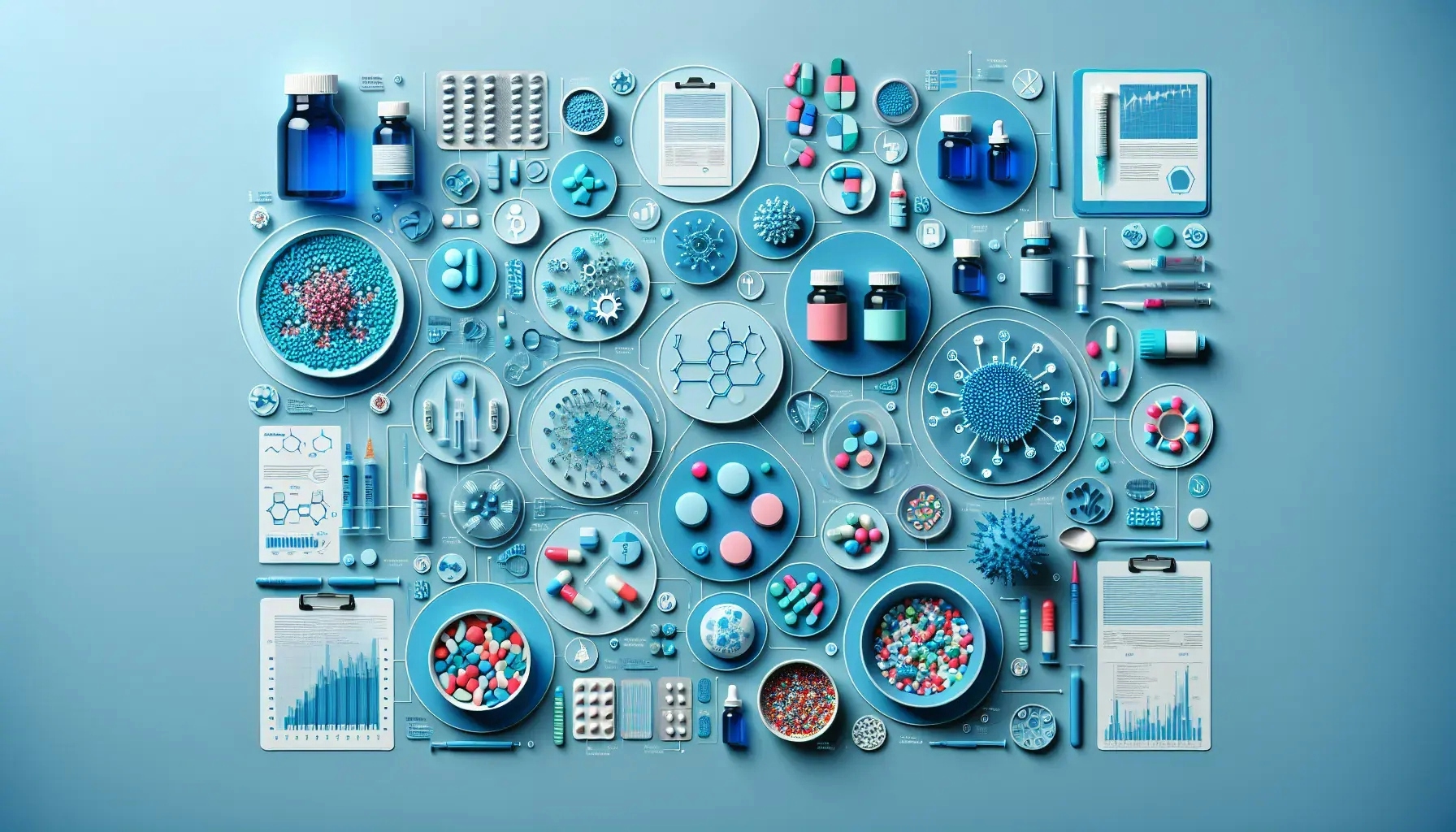How Biosimilars Are Changing the Market
Pharmaceutical.press

Welcome to a new era in the pharmaceutical industry, where biosimilars are reshaping the market dynamics. These innovative biologic products, similar but not identical to the original, are creating a seismic shift in the healthcare industry. This blog post will delve into the impact of biosimilars, their role in fostering competition, and how they are driving down healthcare costs.
Understanding Biosimilars: A New Era in Medicine
Biosimilars represent a new chapter in the world of medicine. They are biologic products, designed to be highly similar to already approved biologic drugs, known as reference products. Despite minor differences in clinically inactive components, biosimilars have no clinically meaningful differences in terms of safety, purity, and potency from the reference product.
The development of biosimilars has opened up new avenues in the pharmaceutical industry. It has led to an increase in competition, which in turn is driving down the prices of biologic drugs. This is a significant development, considering the high cost of biologic drugs has often been a barrier to patient access.
Moreover, the advent of biosimilars has also led to an expansion in treatment options. With more products available in the market, healthcare providers now have a wider range of choices when it comes to treating patients. This has the potential to improve patient outcomes and enhance the overall quality of healthcare.
The Impact of Biosimilars on the Market
Biosimilars are making waves in the pharmaceutical market. They are not only increasing competition but also driving down prices, making healthcare more affordable for patients.
One of the most significant impacts of biosimilars is their role in reducing healthcare costs. Biologic drugs are often expensive, putting them out of reach for many patients. However, the introduction of biosimilars has led to a decrease in prices, making these drugs more accessible.
In addition to reducing costs, biosimilars are also fostering innovation in the pharmaceutical industry. The need to develop biosimilars that are as effective and safe as the reference product is pushing companies to invest in research and development. This is leading to the discovery of new treatment options, further enhancing patient care.
Challenges and Opportunities in the Biosimilars Market
While the biosimilars market is booming, it is not without its challenges. One of the main hurdles is the complex process of developing and manufacturing biosimilars. Unlike generic drugs, biosimilars cannot be exactly replicated due to the complex nature of biologic drugs.
Another challenge is the lack of awareness and understanding about biosimilars among healthcare providers and patients. This can lead to hesitation in prescribing and using biosimilars, limiting their market penetration.
Despite these challenges, the biosimilars market presents numerous opportunities. The growing demand for affordable healthcare, coupled with the increasing prevalence of chronic diseases, is expected to drive the growth of the biosimilars market. Moreover, the expiry of patents for several biologic drugs is creating opportunities for biosimilar manufacturers.
The Future of Biosimilars
The future of biosimilars looks promising. With advancements in technology and an increasing understanding of biologic drugs, the development of biosimilars is expected to become more streamlined.
Furthermore, as more healthcare providers and patients become aware of the benefits of biosimilars, their acceptance and use are likely to increase. This will further drive the growth of the biosimilars market.
The future also holds the promise of more targeted therapies. As research in the field of biosimilars advances, we can expect the development of biosimilars that are tailored to individual patient needs. This will not only improve patient outcomes but also contribute to the growth of personalized medicine.
The Role of Regulatory Bodies in the Biosimilars Market
Regulatory bodies play a crucial role in the biosimilars market. They are responsible for ensuring the safety and efficacy of biosimilars, thereby instilling confidence among healthcare providers and patients.
Regulatory bodies, such as the U.S. Food and Drug Administration (FDA) and the European Medicines Agency (EMA), have established guidelines for the development and approval of biosimilars. These guidelines are designed to ensure that biosimilars meet the same standards of safety, purity, and potency as the reference product.
In addition to setting guidelines, regulatory bodies also play a role in promoting the use of biosimilars. They do this by educating healthcare providers and patients about the benefits of biosimilars and addressing any misconceptions.
Case Studies: Success Stories in the Biosimilars Market
The biosimilars market has seen several success stories. Companies like Sandoz, Amgen, and Pfizer have successfully launched biosimilars in the market.
Sandoz, for instance, was the first company to get a biosimilar approved in Europe. Its biosimilar of the growth hormone somatropin was approved by the EMA in 2006. Since then, the company has launched several other biosimilars, contributing to the growth of the market.
Amgen, another major player in the biosimilars market, has also seen success with its biosimilars. The company's biosimilar of the cancer drug trastuzumab was approved by the FDA in 2017. This biosimilar, sold under the brand name Kanjinti, has been well received in the market.
The Biosimilars Revolution: A New Dawn in Healthcare
Biosimilars are indeed revolutionizing the pharmaceutical market. They are increasing competition, driving down prices, and expanding treatment options. Despite the challenges, the future of biosimilars looks promising. With advancements in technology and a growing understanding of biologic drugs, the biosimilars market is set to flourish. As we move forward, biosimilars will continue to play a crucial role in making healthcare more affordable and accessible.